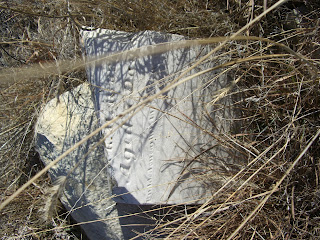What makes me sad is that children sometimes learn that poetry must be read (or recited) in a sing-song way, pausing at the end of every line. That isn't true.
David McCord had three rules: Good poems for children are never trivial. As for the poet, poems should never be written "without the characteristic chills and fever of a dedicated man at work." In addition, poems written by adults for children "must never bear the stigma of I am adult, you are a child."
When McCord was 12 years old his family lived on his uncle's farm on the edge of a wilderness. He said that it was there where he learned: "Poetry is rhythm, just as the planet Earth is rhythm; the best writing, or poetry or prose--no matter what the message it conveys--depends on a very sure and subtle rhythm."
However, he did not mean the reader had to read dah-da, dah-da, dah-dum. I will share his poem, Every Time I Climb a Tree. Here are my suggestions: The first stanza has no punctuation until the end. Interpret that as permission to feel your own rhythm and use pauses and full stops where they seem natural. The first three lines are identical. Read them with a different word emphasized in each line.
The next stanza gives you the opportunity to mimic a typical adult in the second line, to break up the other lines in which the child is speaking.
The third stanza seems to want the first three lines run together, with a break before the fourth line.
That gives you some idea about how I think this poem flows, but the last stanza try where it feels right for you to pause, emphasize words, stretch words out, and make the words sound spoken, without any artificial rules or stopping at the end of each line.
I know that most of you are readers and may be passionate about poetry too, but for those a lttle intimidated about poetry, give this a try!
Make poetry fun for kids to hear and to recite, and they may come to love their favorite poems almost as much as Isaac Werner loved Shakespeare!
Every Time I Climb a Tree
David McCord
Every time I climb a tree
Every time I climb a tree
Every time I climb a tree
I scrape a leg
Or skin a knee
And every time I climb a tree
I find some ants
Or dodge a bee
And get the ants
All over me.
And every time I climb a tree
Where have you been?
They say to me
But don't they know that I am free
Every time I climb a tree?
I like it best
To spot a nest
That has an egg
Or maybe three.
And then I skin
The other leg
But every time I climb a tree
I see a lot of things to see
Swallows rooftops and TV
And all the fields and farms there be
Every time I climb a tree
Though climbing may be good for ants
It isn't awfully good for pants
But still it's pretty good for me
Every time I climb a tree.
Of course, many of you remember that Isaac claimed a timber claim, as well as a homestead. Before he got his horse, tending trees was his primary task. At least one of his trees was big and strong enough for him to climb with a borrowed camera to try to take an "aerial" shot of his farm. It was too windy to keep the old glass-plate camera steady long enough!
Share your stories and the stories of your tree-climbing children and grandchildren, and let me know if they like the poem.










